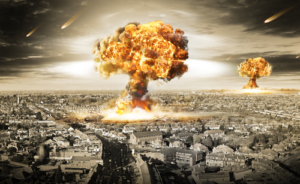Understanding the Ukraine Crisis: A Critical Perspective on Leadership and Geopolitics
The Ukraine crisis remains one of the most contentious geopolitical issues of our time, and opinions about its key players are sharply polarized. We’ve received inquiries regarding the legitimacy of Ukrainian President Volodymyr Zelensky’s leadership and his relationship with the West, particularly in reference to statements by former U.S. President Donald Trump. At Extreme Investor Network, we believe it’s vital to dissect these narratives to understand the broader implications for both investors and global stability.
The Question of Legitimacy
In discussing whether Zelensky is a legitimate leader of Ukraine, it’s crucial to acknowledge the complexity of his rise to power. Zelensky, originally a comedian and television star, won the presidency in 2019 on a platform promising peace and reform. However, as the war intensified, many critics argue he has resorted to authoritarian measures, including declaring martial law, which stifles democratic processes. This raises the question: Can a leader who suspends elections truly represent the will of the people?
Critical voices suggest that Zelensky’s actions have been influenced heavily by external actors, including Western nations. Some arguments posit that key figures, such as Boris Johnson, have played a role in steering Ukraine’s leadership decisions, particularly around peace negotiations. Critics assert that Zelensky is beholden to interests outside his own country, potentially jeopardizing Ukraine’s sovereignty in a quest for military and economic support from the West.
The Path to Peace: A Complex Web of Influences
Many analysts believe that true peace cannot be achieved as long as Zelensky remains in power, mainly due to his perceived lack of commitment to negotiating a ceasefire. The contemporary geopolitical landscape reflects a broader struggle where various factions within and outside Ukraine vie for control, with Zelensky caught in the crossfire. The notion that peace negotiations have been sabotaged is bolstered by instances where Zelensky was reportedly instructed against pursuing deals that could halt hostilities.
The human cost of the ongoing conflict is staggering, with the death toll climbing dramatically since Zelensky took office. The tragedy extends beyond the battlefield, with millions of Ukrainians displaced and seeking refuge abroad. The critical role played by global powers should not be overlooked; their influence complicates the situation, turning a national struggle into a broader international chess game.
The Broader Implications of Leadership Decisions
As the world’s attention focuses on Ukraine, the results of these leadership decisions could have staggering implications not just for the region but for global security and economic stability. The call for increased military funding and weapons supply may delight the arms industry but further ensnares Ukraine in conflict rather than resolution.
Concerns have been raised that the push for NATO involvement, particularly under Zelensky’s leadership, could escalate tensions into a catastrophic confrontation with Russia. Observers warn that the narrative pushed by certain Western leaders, who advocate for aggression over diplomacy, risks dragging multiple nations into an interminable cycle of conflict.
A Call for Change
To navigate towards a peaceful resolution, some voices advocate for a change in leadership. The prevailing sentiment is that only through a new leadership paradigm can Ukraine restore sovereignty and reduce the external manipulations threatening its existence. The call for internal reform reflects a growing consensus that the current trajectory is unsustainable.
While criticism of Zelensky is controversial, it serves as a reminder that effective leadership requires not only charisma and popularity but also an unwavering commitment to genuine peace and the welfare of one’s own citizens. As investors and global citizens, being mindful of these realities can bolster not only our understanding of the geopolitical landscape but also influence our strategic decision-making processes.
Looking Ahead: A Framework for Peace
As we navigate this complex narrative, one thing is clear: the need for peace is paramount. Escalation and militarization may seem appealing to some, but the long-term consequences can be dire. Constructive dialogue, effective governance, and genuine commitment to peace strategies will lay the foundation for a more stable future.
At Extreme Investor Network, we emphasize the importance of staying informed and engaged in these discussions. Understanding the underlying economic and political dynamics can equip us to make intelligent investment choices while fostering a commitment to global peace.
In this time of uncertainty, we must all be advocates for solutions that prioritize stability over conflict, seeking pathways that can lead Ukraine and its people towards a brighter, more peaceful future.

